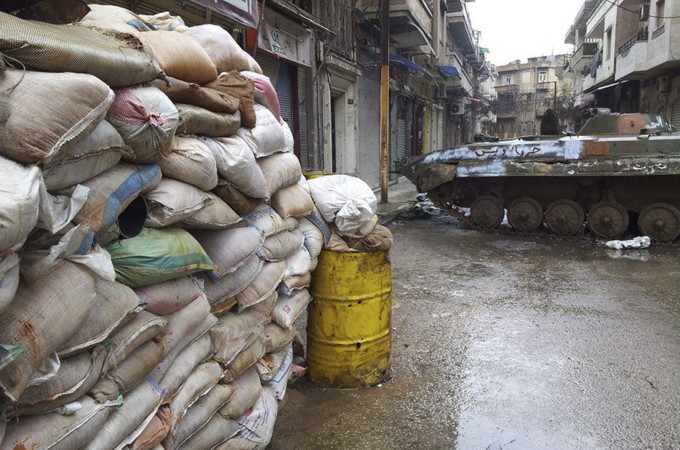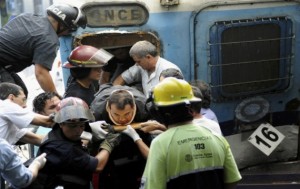By Terance Walsh
Impunity Watch Reporter, Europe
BERLIN, Germany — Germany has rejected recent calls to end its practice of castration of sex offenders, reasoning that the punishment has a high deterrent effect. The Council of Europe’s Committee for the Prevention of Torture (CPT) has led the calls for Germany to end the practice recently.

Voluntary castration was implemented as a punishment in Germany’s 1969 Law on Voluntary Castration. A person over the age of 25 who has committed a sex crime may be subject to castration if he “displays an abnormal sex drive, which … gives reason to suspect that he will commit one or more criminal offenses.”
The punishment is not mandatory and may only be used with the informed consent of the offender. The convicted offender can only be castrated after he is informed of the implications of his decision and medical approval is obtained. Germany’s use of castration as a punishment is reportedly “rare”, only used on about five offenders annually during the past decade.
German officials posit that castration is not a punishment, but instead is a treatment for those with an abnormal sex drive.
Despite the rarity and consensual nature of the punishment the CPT has still called on Germany to stop castrating because of its degrading nature. “It’s a highly controversial issue. There are divided opinions on the subject — some justify it on the basis that the results validate the process,” said Tim Dalton, leader of the CPT. “[The CPT’s] fundamental position is that it’s not an appropriate response to the threat of reoffending to mutilate a person, which is in effect what is involved.”
The CPT also criticized the Czech Republic, the only other European nation to practice castration. The Czech Republic still offers castration as an optional punishment for convicted sex offenders.
The CPT gave four main reasons for its opposition to castration. First, the punishment has permanent effects that may cause physical or psychological damage. Second, castration does not conform to the punishment guidelines set forth by the International Organization for the Treatment of Sex Offenders. Third, there is no guarantee of a lasting reduction of the sex offender’s testosterone level. And fourth, it is unclear how “consensual” the punishment actually is.
The CPT’s report also cites investigations into ill treatment of offenders during police custody, conditions for immigrants who have been detained, and allegations of violence amongst prisoners.
Germany has stood fast against the calls to cease castration, citing a high deterrent effect supported by a low recidivism rate. Specifically, Germany points to a 1997 report that shows a three percent recidivism rate amongst those who opted for castration. Out of 104 sex who underwent castration between 1970 and 1980, only three went on to repeat their offense. The report also showed a forty-seven percent recidivism rate for a control group that did not get castrated.
A spokesperson for the German government stated, “Germany defends the procedure on the grounds that surgery helps where illnesses connected to an abnormal sex drive must be treated, or in order to counter the risk of future unlawful offences being committed by sexual offenders and/or violent offender.
“As far as the federal government is aware, there are quite a number of scientific studies on the criminological long-term effects of surgical castration.”
Presently Germany has no plans to eliminate castration as an option for convicted sex offenders, but Berlin has expressed agreeability to talks on the issue.
The Council of Europe is Europe’s primary watchdog for torturous practices, but the Council itself has no actual power to change laws. Still, its opinions and critiques carry a great deal of influence.
The practice of castration of sex criminals dates back to Nazi Germany where thousands of sex criminals were forcibly castrated.
Russia recently implemented a form of voluntary chemical castration for sex offenders. The law was proposed last summer and was approved this month. During the course of the debate the majority party, which proposed the punishment, wanted chemical castration to be mandatory.
South Korea, Canada, France, Israel, Poland, some US states, Britain, Denmark, and Sweden offer voluntary chemical castration drugs to sex offenders.
For more information please see:
CNN — Germany Asked to Stop Castrating Sex Criminals — 23 February 2012
Daily Mail — Germany Rejects Demand to Stop Castrating Sex Criminals as Part of Their Punishment — 23 February 2012
JURIST — Council of Europe Criticizes Germany Castration Law — 23 February 2012
BBC — Germany Urged to End Sex Offender Castration — 22 February 2012
MSNBC — Germany Urged to Stop Castrating Sex Offenders — 22 February 2012
The National — Calls for Germany to End Surgical Castration of Sex Offenders — 22 February 2012
Reuters — Germany Urged to Halt Castration of Sex Offenders — 22 February 2012



